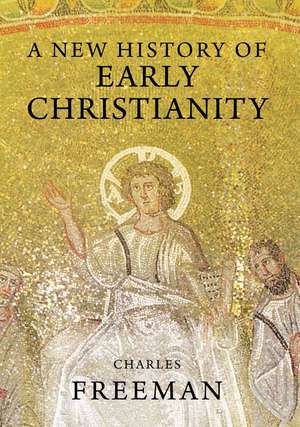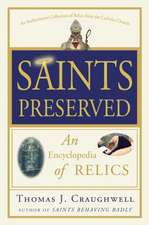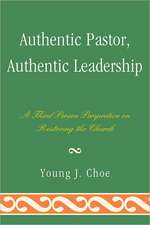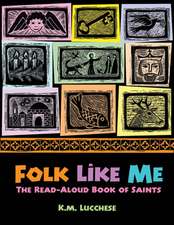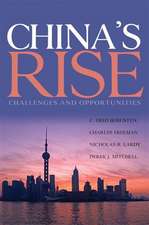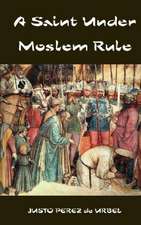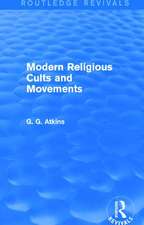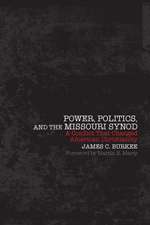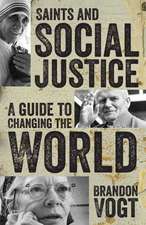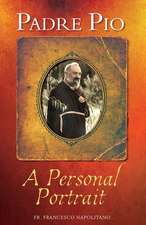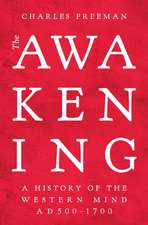A New History of Early Christianity
Autor Charles Freemanen Limba Engleză Paperback – 26 apr 2011
This
stimulating
history
of
early
Christianity
revisits
the
extraordinary
birth
of
a
world
religion
and
gives
a
new
slant
on
a
familiar
story
The relevance of Christianity is as hotly contested today as it has ever been.A New History of Early Christianityshows how our current debates are rooted in the many controversies surrounding the birth of the religion and the earliest attempts to resolve them. Charles Freeman’s meticulous historical account of Christianity from its birth in Judaea in the first century A.D. to the emergence of Western and Eastern churches by A.D. 600 reveals that it was a distinctive, vibrant, and incredibly diverse movement brought into order at the cost of intellectual and spiritual vitality. Against the conventional narrative of the inevitable “triumph” of a single distinct Christianity, Freeman shows that there was a host of competing Christianities, many of which had as much claim to authenticity as those that eventually dominated. Looking with fresh eyes at the historical record, Freeman explores the ambiguities and contradictions that underlay Christian theology and the unavoidable compromises enforced in the name of doctrine.
Tracing the astonishing transformation that the early Christian church underwent—from sporadic niches of Christian communities surviving in the wake of a horrific crucifixion to sanctioned alliance with the state—Charles Freeman shows how freedom of thought was curtailed by the development of the concept of faith. The imposition of "correct belief," religious uniformity, and an institutional framework that enforced orthodoxy were both consolidating and stifling. Uncovering the difficulties in establishing the Christian church, he examines its relationship with Judaism, Gnosticism, Greek philosophy and Greco-Roman society, and he offers dramatic new accounts of Paul, the resurrection, and the church fathers and emperors.
The relevance of Christianity is as hotly contested today as it has ever been.A New History of Early Christianityshows how our current debates are rooted in the many controversies surrounding the birth of the religion and the earliest attempts to resolve them. Charles Freeman’s meticulous historical account of Christianity from its birth in Judaea in the first century A.D. to the emergence of Western and Eastern churches by A.D. 600 reveals that it was a distinctive, vibrant, and incredibly diverse movement brought into order at the cost of intellectual and spiritual vitality. Against the conventional narrative of the inevitable “triumph” of a single distinct Christianity, Freeman shows that there was a host of competing Christianities, many of which had as much claim to authenticity as those that eventually dominated. Looking with fresh eyes at the historical record, Freeman explores the ambiguities and contradictions that underlay Christian theology and the unavoidable compromises enforced in the name of doctrine.
Tracing the astonishing transformation that the early Christian church underwent—from sporadic niches of Christian communities surviving in the wake of a horrific crucifixion to sanctioned alliance with the state—Charles Freeman shows how freedom of thought was curtailed by the development of the concept of faith. The imposition of "correct belief," religious uniformity, and an institutional framework that enforced orthodoxy were both consolidating and stifling. Uncovering the difficulties in establishing the Christian church, he examines its relationship with Judaism, Gnosticism, Greek philosophy and Greco-Roman society, and he offers dramatic new accounts of Paul, the resurrection, and the church fathers and emperors.
Preț: 102.71 lei
Nou
Puncte Express: 154
Preț estimativ în valută:
19.65€ • 20.52$ • 16.27£
19.65€ • 20.52$ • 16.27£
Carte disponibilă
Livrare economică 14-28 martie
Livrare express 28 februarie-06 martie pentru 27.43 lei
Preluare comenzi: 021 569.72.76
Specificații
ISBN-13: 9780300170832
ISBN-10: 0300170831
Pagini: 400
Ilustrații: 16 pp. b-w illus.
Dimensiuni: 127 x 197 x 29 mm
Greutate: 0.45 kg
Editura: Yale University Press
Colecția Yale University Press
ISBN-10: 0300170831
Pagini: 400
Ilustrații: 16 pp. b-w illus.
Dimensiuni: 127 x 197 x 29 mm
Greutate: 0.45 kg
Editura: Yale University Press
Colecția Yale University Press
Recenzii
"Freeman
has
a
gift
for
crafting
a
compelling
story
out
of
the
messy
details
of
history,
painting
nuanced
portraits
of
key
figures
through
compelling
quotations
and
precise
historical
observation."—Steve
Young,Library
Journal
"[Freeman]
surveys
a
surprisingly
diverse
range
of
early
Christian
communities,
differing
from
one
another
in
doctrine,
devotional
observances,
and
attitudes
toward
pagan
philosophy.
But
in
the
narrative
that
he
presses
most
insistently,
Freeman
recounts
how
small
and
politically
marginal
bands
of
Christians—subject
to
savage
persecution—transformed
into
an
imperially
powerful
church
serving
Roman
emperors
(notably,
Constantine
and
Theodosius)
and
persecuting
heretics
unwilling
to
embrace
the
creeds
those
emperors
helped
to
hammer
out."—Bryce
Christensen,Booklist
"[Freeman]
surveys
a
surprisingly
diverse
range
of
early
Christian
communities,
.
.
.
[and]
recounts
how
small
and
politically
marginal
bands
of
Christians.
.
.
transformed
into
an
imperially
powerful
church
serving
Roman
emperors
(notably,
Constantine
and
Theodosius)
and
persecuting
heretics
unwilling
to
embrace
the
creeds
those
emperors
helped
to
hammer
out."—Bryce
Christensen,Booklist
"It's
a
mighty
undertaking
in
such
a
modestly
sized
volume,
but
if
you
want
to
understand
the
reasons
for
present
day
schisms,
you'll
find
the
answers
in
this
well-reasoned
book."—Dave
Wood,the
Red
Wing
Republican
Eagle
".
.
.
a
masterful
work
that
adds
to
the
knowledge
of
Christian
history."—Kevin
Winter,sacramentobookreview.com
"A
fresh
and
provocative
book:
insightful,
adventurous
and
controversial."—Laurie
Guy,Colloquium
"Freeman
rigorously
maintains
a
nonjudgmental
approach
to
the
breadth
of
Christian
diversity
.
.
.
A
nuanced
and
sophisticated
presentation
of
the
dialogues
(both
within
and
outside
of
the
tradition)
that
shaped
the
Christian
experience
through
the
fifth
century.
.
.
.
This
book
will
likely
become
the
standard
text
for
introductory
courses."—David
M.
Reis,Religious
Studies
Review
"This
book
combines
clear
descriptions
with
a
large
amount
of
detail,
presenting
them
in
manageable
bits,
so
that
even
the
interested
lay
reader
will
find
this
book
accessible
with
a
little
study.
.
.
.
Much
to
Freeman's
credit
and
to
the
benefit
of readers,
he
leads
them
through
the
years
in
which
Christianity
was
shaped
by
these
imperial
forces,
considering
to
what
extent
these
were
internal
and
external
changes.
This
book
is
a
great
addition
to
the
bookshelf
of
both
educators
and
pastors
who
are
interested
in
the
origins
of
Christianity."—Andrea
Janelle
Dickens,Interpretations
"As
usual,
Freeman
writes
clearly
and
avoids
the
tediousness
that
can
afflict
scholarly
texts."—Randal
Hunhoff,Arkansas
Democrat
Gazette
"A
History
of
Early
Christianityis
a
masterful
book,
and
a
pleasure
to
read.
Freeman
narrates
the
development,
diversity,
and
spread
of
Christianity
with
originality
and
verve.
It
is
a
story
that
brims
over
with
fascinating
accounts,
intriguing
quotations
from
figures
in
the
ancient
Mediterranean,
and
illuminating
historical
analysis.
It
is
also
a
crucial
resource
for
our
understanding
of
ongoing
cultural
negotiations
of
religious
and
political
spheres,
all
those
theologico-political
paradoxes
that
face
us
now
more
than
ever.
I
do
not
think
there
exists
a
more
engaging
and
illuminating
history
of
early
Christianity
than
this
one."—Ward
Blanton,
University
of
Glasgow
"Even
those
who
are
adherents
to
Christianity
may
be
puzzled
by
the
tensions
which
exist
in
its
primary
sources,
and
this
meticulous
attempt
to
probe
its
origins
and
development
is
to
be
welcomed.
Charles
Freeman
embraces
the
different
kinds
of
approaches
and
positions
which
are
found
in
the
ancient
texts,
Christian
and
otherwise,
painting
a
vivid
picture
of
the
nature
of
Christianity
in
all
its
diversity
in
the
earliest
centuries
of
its
existence."—Christopher
Rowland,
author
ofChristian
Origins
"This
is
a
bold
and
imaginative
historical
synthesis
which
fills
an
important
need.
For
the
first
time,
Freeman
makes
the
complex
story
of
Christianity's
birth
and
early
development
available
in
concise,
lively,
eminently
readable
form.
A
tragic
story
in
many
ways,
but
a
great
pleasure
to
read."—Richard
Rubenstein,
author
ofWhen
Jesus
Became
God
Notă biografică
Charles Freeman is a specialist on the ancient world and its legacy. He has worked on archaeological digs on the continents surrounding the Mediterranean and develops study tour programs in Italy, Greece, and Turkey. Freeman is Historical Consultant to the prestigious Blue Guides series and the author of numerous books, including the bestseller The Closing of the Western Mind and, most recently, Holy Bones, Holy Dust. He lives in the UK.
Descriere
This stimulating history of early Christianity revisits the extraordinary birth of a world religion and gives a new slant on a familiar story
The relevance of Christianity is as hotly contested today as it has ever been. A New History of Early Christianity shows how our current debates are rooted in the many controversies surrounding the birth of the religion and the earliest attempts to resolve them. Charles Freeman’s meticulous historical account of Christianity from its birth in Judaea in the first century A.D. to the emergence of Western and Eastern churches by A.D. 600 reveals that it was a distinctive, vibrant, and incredibly diverse movement brought into order at the cost of intellectual and spiritual vitality. Against the conventional narrative of the inevitable “triumph” of a single distinct Christianity, Freeman shows that there was a host of competing Christianities, many of which had as much claim to authenticity as those that eventually dominated. Looking with fresh eyes at the historical record, Freeman explores the ambiguities and contradictions that underlay Christian theology and the unavoidable compromises enforced in the name of doctrine.
Tracing the astonishing transformation that the early Christian church underwent—from sporadic niches of Christian communities surviving in the wake of a horrific crucifixion to sanctioned alliance with the state—Charles Freeman shows how freedom of thought was curtailed by the development of the concept of faith. The imposition of "correct belief," religious uniformity, and an institutional framework that enforced orthodoxy were both consolidating and stifling. Uncovering the difficulties in establishing the Christian church, he examines its relationship with Judaism, Gnosticism, Greek philosophy and Greco-Roman society, and he offers dramatic new accounts of Paul, the resurrection, and the church fathers and emperors.
The relevance of Christianity is as hotly contested today as it has ever been. A New History of Early Christianity shows how our current debates are rooted in the many controversies surrounding the birth of the religion and the earliest attempts to resolve them. Charles Freeman’s meticulous historical account of Christianity from its birth in Judaea in the first century A.D. to the emergence of Western and Eastern churches by A.D. 600 reveals that it was a distinctive, vibrant, and incredibly diverse movement brought into order at the cost of intellectual and spiritual vitality. Against the conventional narrative of the inevitable “triumph” of a single distinct Christianity, Freeman shows that there was a host of competing Christianities, many of which had as much claim to authenticity as those that eventually dominated. Looking with fresh eyes at the historical record, Freeman explores the ambiguities and contradictions that underlay Christian theology and the unavoidable compromises enforced in the name of doctrine.
Tracing the astonishing transformation that the early Christian church underwent—from sporadic niches of Christian communities surviving in the wake of a horrific crucifixion to sanctioned alliance with the state—Charles Freeman shows how freedom of thought was curtailed by the development of the concept of faith. The imposition of "correct belief," religious uniformity, and an institutional framework that enforced orthodoxy were both consolidating and stifling. Uncovering the difficulties in establishing the Christian church, he examines its relationship with Judaism, Gnosticism, Greek philosophy and Greco-Roman society, and he offers dramatic new accounts of Paul, the resurrection, and the church fathers and emperors.
